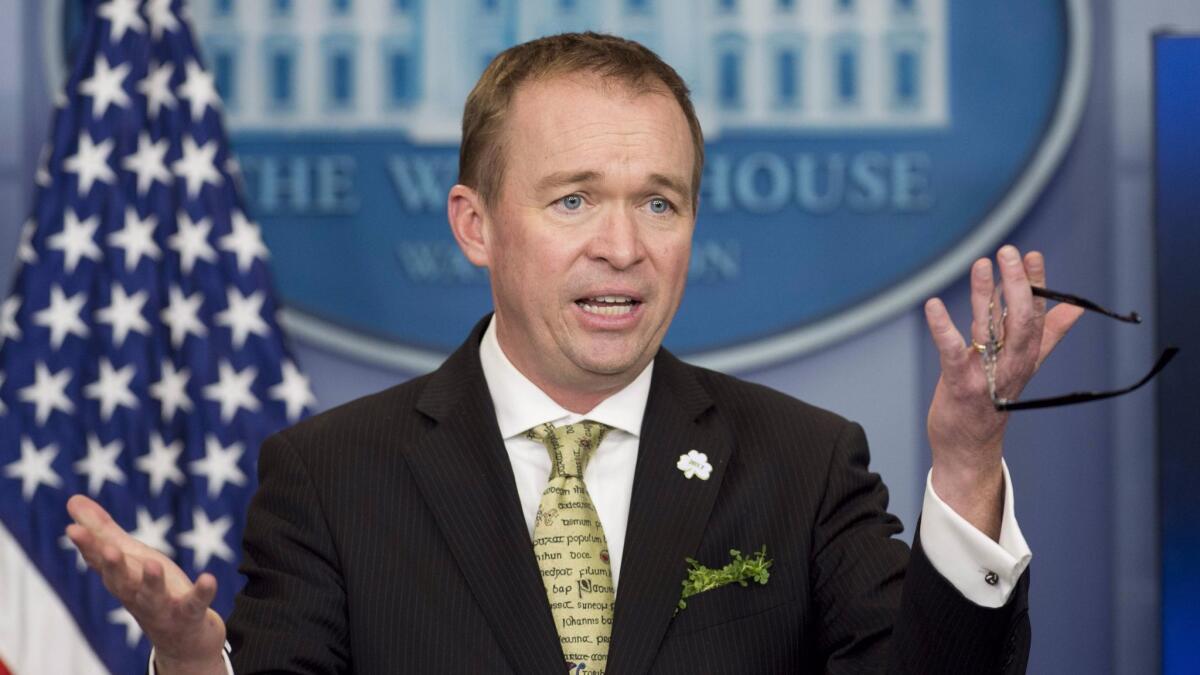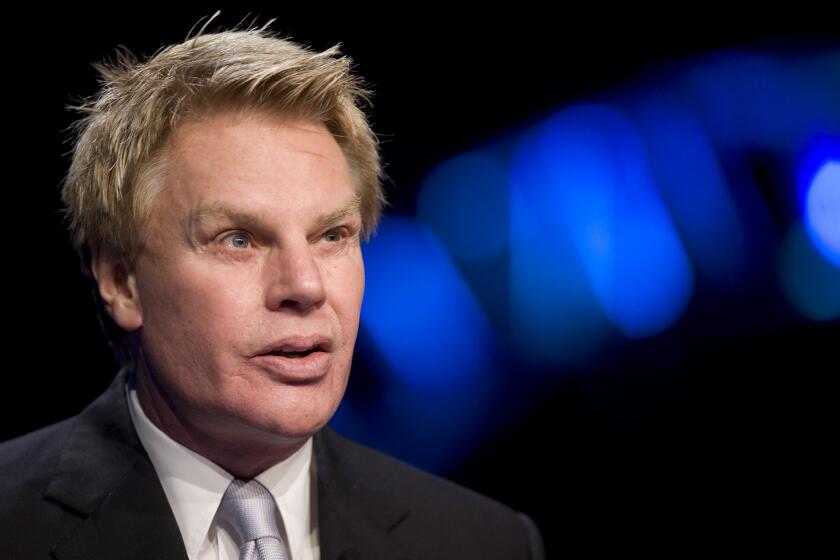Consumer bureau’s deputy director sues to stop Trump appointee from taking temporary control of agency

The battle over control of the Consumer Financial Protection Bureau escalated Sunday as the deputy director sued to stop President Trump from installing his own appointee as temporary head of the agency.
Leandra English, who was promoted to deputy director Friday, filed suit in U.S. District Court for the District of Columbia, saying Trump’s appointment of Mick Mulvaney as acting director of the bureau was unlawful. She requested a temporary restraining order to block him from taking the position.
The nine-page filing said English is “the rightful acting director of the bureau” because the Dodd-Frank Act, which created the agency in 2010, specifically states that the deputy director shall “serve as acting director in the absence or unavailability of the director.”
The suit is the latest twist in a high-stakes battle over leadership of the financial watchdog agency that began Friday when bureau Director Richard Cordray stepped down.
Cordray promoted English, his chief of staff, to deputy director and told the bureau’s staff that she would serve as acting director until Trump nominated a permanent replacement and the Senate confirmed that choice.
But just hours after Cordray submitted his formal resignation, Trump named his own acting director under the Federal Vacancies Reform Act of 1998.
Trump appointed Mulvaney, the director of the White House Office of Management and Budget, to serve as acting director. The vacancy law allows the president to designate someone who already has been confirmed by the Senate to perform acting duties.
Mulvaney would remain as OMB director while also overseeing the consumer bureau until a permanent director is confirmed and sworn in.
Senior Trump administration officials said that the 1998 law superseded the Dodd-Frank provision. The Justice Department’s Office of Legal Counsel issued an eight-page memo backing up that interpretation.
“The fact that the deputy director may serve as acting director by operation of the statute … does not displace the president’s authority under the Vacancies Reform Act,” said the memo, written by Assistant Atty. Gen. Steven A. Engel.
Trump is eager to gain control of the bureau, which Republicans have criticized as being too aggressive in taking on banks and other financial institutions.
The bureau has provided consumers about $12 billion in refunds, mortgage principal reductions and other relief from financial institutions since opening in 2011. And the bureau played a key role in penalizing Wells Fargo & Co. for its creation of unauthorized accounts.
“The Consumer Financial Protection Bureau, or CFPB, has been a total disaster as run by the previous Administrations pick,” Trump tweeted on Saturday. “Financial Institutions have been devastated and unable to properly serve the public. We will bring it back to life!”
Supporters of the bureau said Trump is violating the Dodd-Frank law so that he can immediately start scaling back the agency’s consumer protection rules and enforcement activity.
“It’s a watchdog agency. Wall Street hates it like the devil hates holy water,” Sen. Richard Durbin (D-Ill). told CNN Sunday. “And they’re trying to put an end to it with Mr. Mulvaney stepping into Cordray’s spot. But the statute is specific, it’s clear, and it says that the deputy shall take over.”
In her suit against Trump and Mulvaney, English asked the court to declare she is the bureau’s acting director and to order Trump to “refrain from appointing any individual to the position.”
Twitter: @JimPuzzanghera
More to Read
Inside the business of entertainment
The Wide Shot brings you news, analysis and insights on everything from streaming wars to production — and what it all means for the future.
You may occasionally receive promotional content from the Los Angeles Times.











